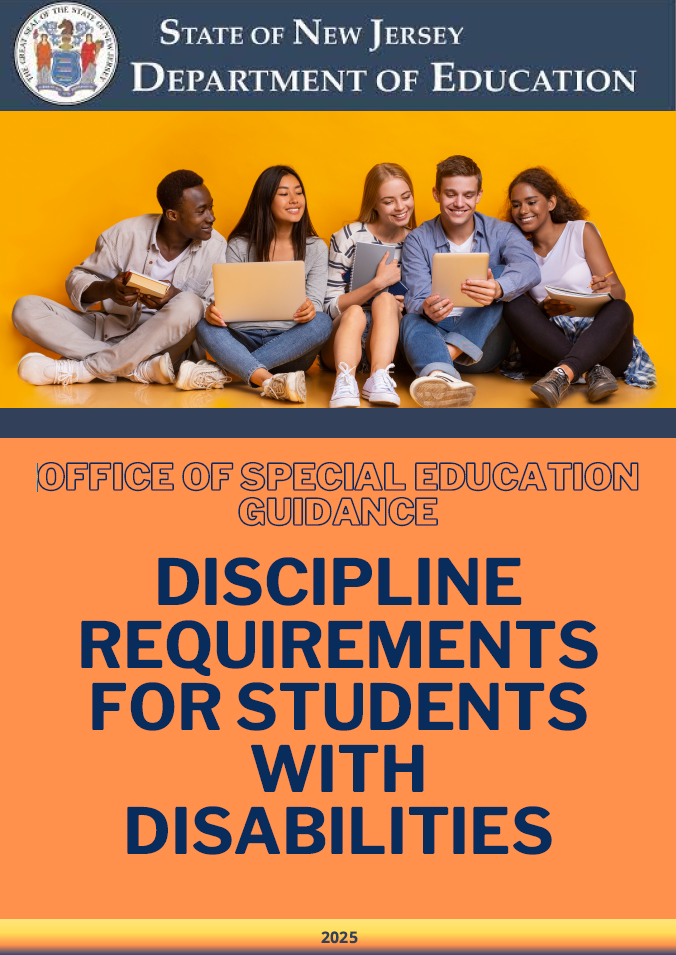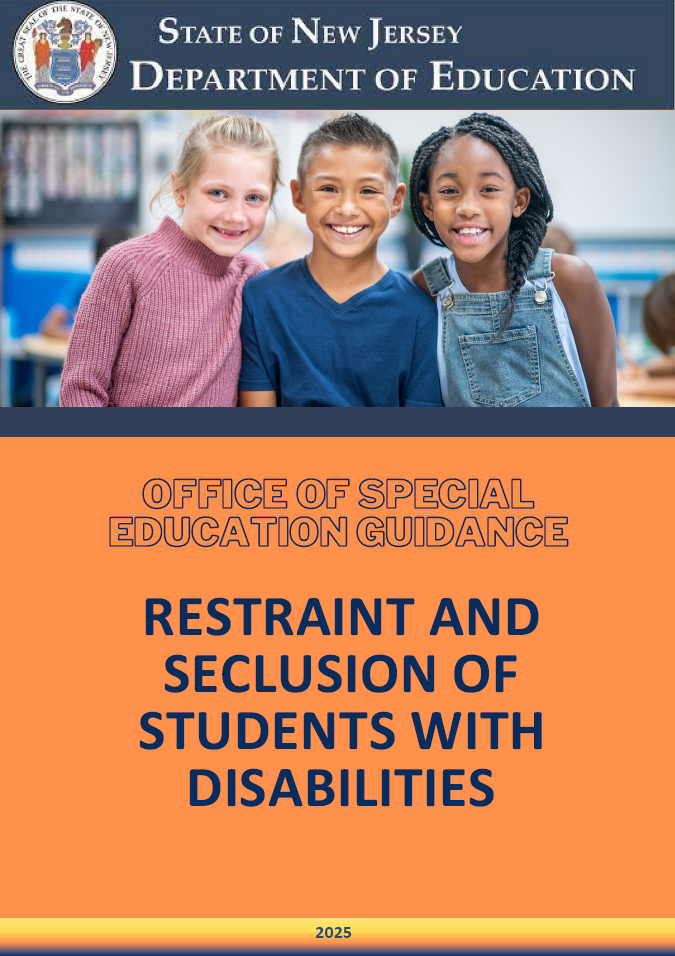Discipline
This website is a comprehensive resource for districts and families, offering clear guidance on state and federal rules for disciplining students with disabilities or those suspected of having a disability. It also shares best practices for using positive behavioral supports and interventions. The site serves both as a decision-making tool, helping determine when and how suspensions or removals may occur, and as a framework for districts to review and align their discipline policies with legal requirements.
State and federal regulations provide important legal protections and procedural safeguards to ensure that the suspension and discipline of students with disabilities are fair and uphold their rights. These protections also apply to students who may be identified as having a disability. At the federal level, the Individuals with Disabilities Education Act (IDEA) establishes guidelines that seek to balance school safety with each student’s right to a free and appropriate public education (FAPE). In New Jersey, the Administrative Code (6A:14) reinforces these federal protections while adding additional state-level safeguards to further support the educational rights of students with disabilities.
Questions and Answers: Addressing the Needs of Children with Disabilities and IDEA’s Discipline Provisions: This document from the U.S. Department of Education provides a series of questions and answers addressing common issues related to the implementation of IDEA’s discipline provisions and regulations.
N.J.A.C. 6A:14-2.8- Discipline/suspension/expulsion: Subchapter 2.8 of New Jersey Administrative Code 6A:14 outlines state-specific regulations regarding the discipline, suspension, and expulsion of students with disabilities.
State and federal regulations on restraint and seclusion safeguard the safety and rights of students with disabilities. It is essential to understand the legal guidelines, limitations, and best practices for addressing behavioral crises with respect, dignity, and care.
- Guidance on Restraint and Seclusion: This guidance provides an overview of best practices, along with specific details on state and federal regulations regarding the restraint and seclusion of students with disabilities.
- Broadcast Memo: Restraint and Seclusion Guidance for Students with Disabilities (NJDOE, 2018): An overview of NJ state law regarding the restraint and seclusion of students with disabilities.
- United States Department of Education (USDE) Guidance on Restraint and Seclusion: This resource guide, provided by the USDE, offers a comprehensive overview of federal regulations and best practice approaches regarding the restraint and seclusion of students with disabilities.
-
- Individualized Education Program (IEP)
- Manifestation Determination Forms
- Change in Placement Forms
Resources and Supports
Effective positive behavioral supports and interventions help create safe, inclusive, and supportive learning environments. The strategies below promote student success and reduce challenging behaviors through proactive, research-based practices.
- New Jersey Tiered System of Supports (NJTSS): NJTSS is a framework of supports and interventions to improve student achievement, based on the core components of Multi-Tiered Systems of Support and the three tier prevention logic of Response to Intervention (RTI). With a foundation of strong district and school leadership, a positive school culture and climate and family and community engagement, NJTSS builds on Intervention and Referral Services (I&RS) and gives schools structure to meet the academic, behavioral, health, enrichment and social/emotional needs of all students. Scroll over an area of the triangle and click for information on the components of the system.
- Behavior Supports and Interventions (OSE): The Office of Special Education (OSE) implements state and federal laws and regulations governing special education to ensure that students with disabilities in New Jersey receive a free and appropriate public education (FAPE). The office provides statewide leadership through the development of policy and documents, and provides guidance to school districts and parents regarding the implementation of special education programs and services. The office monitors the delivery of special education programs operated under state authority, provides mediation services to parents and school districts, processes hearings with the Office of Administrative Law, and conducts complaint investigations requested by the public. In addition, the office funds regional learning resource centers (LRCs) that provide schools and parents with information services, materials circulation, technical assistance, consultation services and production services. The office also provides technical assistance on topics related to students with disabilites and the development of Individualized Education Programs (IEPs) and accessing individual rights.
- New Jersey Positive Behavior Supports and Interventions in Schools (NJPBSIS): NJPBSIS is a collaboration between the New Jersey Department of Education Office of Special Education and The Boggs Center, Rutgers Robert Wood Johnson Medical School and funded by IDEA Part B. NJPBSIS provides comprehensive professional development to support the implementation of tiered interventions that provide equitable access to a range of school intervention needs including conduct, behavior and social and emotional wellness. Since 2003, NJPBSIS annually enrolls a cohort of schools whose personnel participate in a three-year professional development experience to design and implement a plan for their tiered intervention system. There is no cost to schools or districts to apply, enroll, or receive the professional development services.
- Best Practices for NJ Public Schools Behavior Analysts: The "Best Practices for New Jersey Public School Behavior Analysts" is specifically intended for individuals within the state of New Jersey who hold a Board Certified Behavior Analyst (BCBA®) certification from the Behavior Analyst Certification Board (BACB®) and actively engage in the practice of behavior analysis within public school settings. This resource addresses the unique challenges, nuances, and expectations BCBA® professionals encounter while working in New Jersey's public education system.
- Center on PBIS: Positive Behavioral Interventions and Supports (PBIS) is an evidence-based, three-tiered framework to improve and integrate all of the data, systems, and practices affecting student outcomes every day. PBIS creates schools where all students succeed.
 Official Site of The State of New Jersey
Official Site of The State of New Jersey

